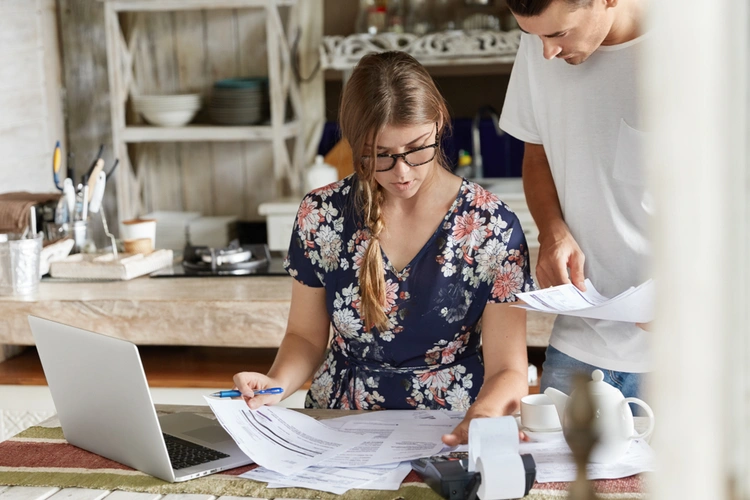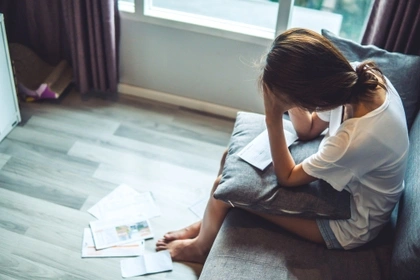Is a secured loan classed as a priority debt?
Yes, a homeowner loan is classed as a priority debt. While it’s important to repay all your debts, you need to make sure you’re dealing with your priority debts first. What makes a debt a priority is the severity of the consequences you could face if you don’t pay it.
A secured loan is classed as a priority debt because it’s tied to an asset that you own - usually your home. If you don’t make your repayments, you could (as a last resort) face being forced to sell your home to pay back the loan.
As the lenders have an added layer of security, it’s unlikely that they would completely write off your debt if you can’t pay – unless you were facing exceptional circumstances. But the decision would depend on the lender’s discretion.
A water bill, on the other hand, is classed as a non-priority bill because the consequences of not paying it are limited to a fine. Just because a debt is not classed as a priority though, doesn’t mean that you shouldn’t make every effort to make your repayments on time and in full - as not doing so will damage your credit score.
It’s a good idea to make a list of all your regular outgoings and make sure they’re prioritised correctly. This will not only give you a helpful overview of your outgoings, but it’ll also ensure that you’re aware of exactly which payments need to be made and when.
Read on to find out what is and isn’t classed as a priority bill.
What happens if I don’t pay my secured loan?
The consequences of being unable to pay your secured loan can be severe, particularly compared to an unsecured loan (or personal loan), which is why it’s classed as a priority debt.
If you can’t repay your secured loan, you could end up being forced to sell your home to cover the outstanding cost of the loan. However, this is only ever usually used as a last resort and there are ways to stop this from happening. This won’t happen suddenly, there will be many opportunities for you to repay your debt arrears. Your lender will make many attempts to contact you and get the repayments before taking court action.
If you can’t repay an unsecured loan, the consequences are limited to fines, Country Court Judgements (CCJs), and damaged credit reports. While these are exceptionally challenging consequences, which can seriously impact your ability to get credit in the future, they’re not as severe as losing your home.
Therefore, it’s important to carefully consider whether a secured loan is better suited to you than an unsecured one. However, no credit should be taken out lightly and you should always make sure you can afford your repayments when considering credit options.
Read on to find out more about how secured and unsecured loans differ.
What should I do if I can’t pay my secured loan?
While you may have taken every precaution to ensure you could afford a secured loan, circumstances can change, and you may find yourself in a position where you’re struggling to make your secured loan repayments. If this is the case, there are several steps you should take.
1. Contact your lender as soon as possible
They may be able to offer you breathing space, a payment holiday or a reduced payment plan. It’s at their discretion but being honest and letting them know quickly will give you the best chance of getting their help. It’s important to bear in mind, though, that reduced payments can potentially affect your credit score.
2. Make a comprehensive budget of your income and outgoings
This will help you to see if there are any areas where you could be saving money to put towards your loan repayments. Creating a budget may come in handy if your lender asks to see details of your incoming and outgoings to review what you can afford to repay.
3. Get free debt advice from a debt organisation
Consider contacting an organisation like StepChange or Citizen’s Advice. They may be able to offer something you hadn’t thought of that might help. Debt charities can even deal with your creditors on your behalf.
The most important thing is to take action, don’t just stop making payments as this could not only reflect negatively and reduce the chance of your lender being willing to help, it could end up having severe consequences, like losing your home.
Can I include my secured loan in a debt management plan?
You cannot normally include a secured loan in a debt management plan as it is classed as a priority debt. Debt management plans can be a useful way of keeping on top of your debt repayments. However, they only include non-priority debts such as credit cards and student loans - not priority debts.
As such, you need to make sure you keep on top of your secured loan and any other priority debts separately from any debt management plan that you may have.
How do I get rid of a secured loan?
As it’s very unlikely that a lender would write off a secured loan, the only way to get rid of one is to pay it off. There are three main ways to do this:
- continue making your regular payments as normal
- negotiate with the lender and agree a different payment plan
- sell the asset the loan is tied to and pay off the debt
As we mentioned above, the second option is the best way to move forward if you’re struggling to make your regular payments (however, reduced payments can impact your credit score).
The final option, selling the asset, can only be done with the lender’s permission. This is because the asset is the lender’s collateral under the terms of the secured loan. If they agree and you sell the asset, the funds from the sale would have to clear any finance on it first (such as your mortgage if the asset is your home, as it is in most cases) before paying off the lender. This is because the secured loan would be the ‘second charge’ on the asset, and the first, such as the mortgage, must be paid off first.
If, after selling the asset, there is still debt leftover on the secured loan, this would have to be repaid separately. If at this point, you’re unable to repay the shortfall, the best thing to do would be to seek financial advice.
Read our helpful guides to learn more about loans.
Disclaimer: We make every effort to ensure content is correct when published. Information on this website doesn't constitute financial advice, and we aren't responsible for the content of any external sites.






